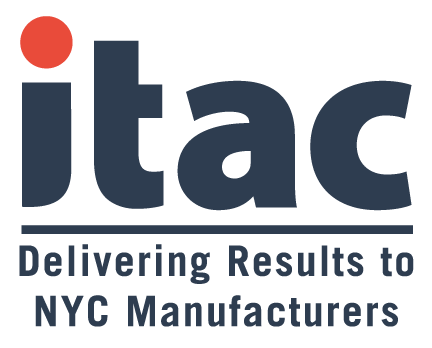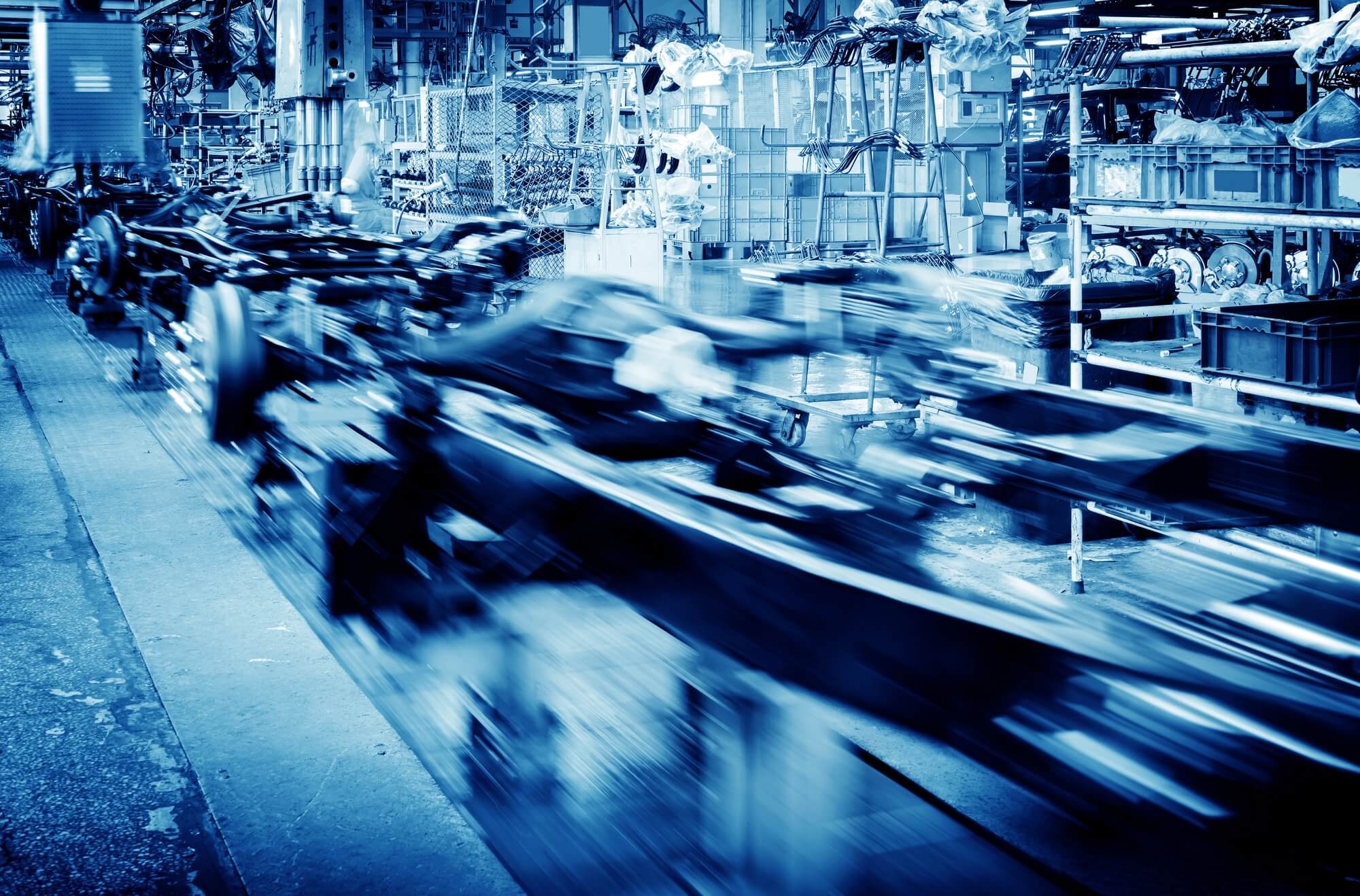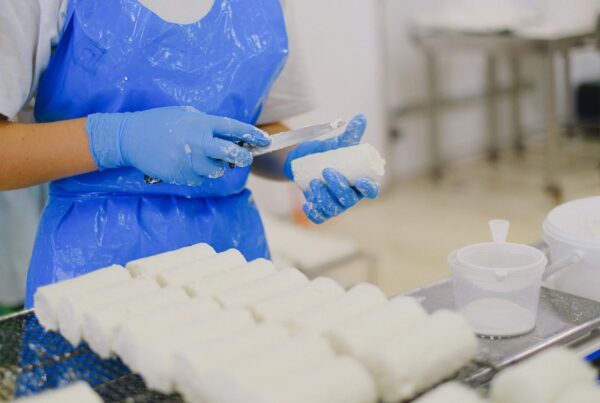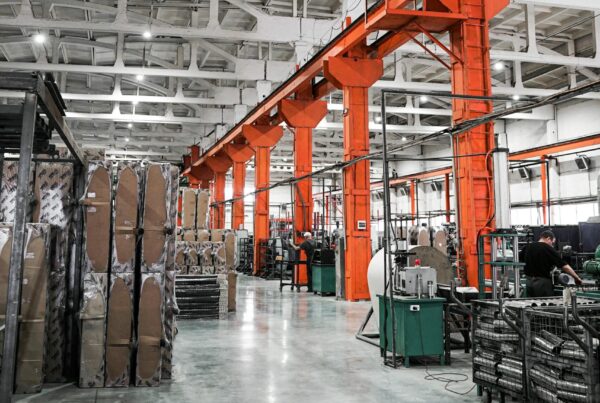Entrepreneur Malcolm McLean, frustrated with the snail-like swiftness of cargo handling he witnessed when he first got into trucking in the 1930s, invented the shipping container in 1956. Little did he know back then that he would wind up changing the whole world.
Today the biggest maker of chassis (the plural is spelled the same as the singular, but pronounced chass-eez), the trailers that handle the over-the-road portion of container intermodal shipping, is working on more modest but still dramatic changes. CIE Manufacturing, Inc. (formerly CIMC Intermodal Equipment), headquartered in South Gate, California, has already revolutionized the business by introducing laser cutting, robotic welding, and powder coating to their manufacturing processes. For years they’ve been steadily working to improve the quality of the chassis they make. Their latest move, started in the fourth quarter of 2019, was to relocate their manufacturing from China to the U.S. by creating full manufacturing capabilities in both their South Gate facility as well as on the east coast in Emporia, Virginia, a move that will target faster product delivery.
The share holder of CIE Manufacturing is CIMC Vehicles Group (CIMC) (HK1839). Headquartered in Shenzhen, China, it’s the world’s largest container box and trailer manufacturer. Its 2018 revenue was nearly $13.5 billion, and its market capitalization is just over $4.5 billion. CIMC’s manufacturing operations span 17 different countries, and the company employs over 51,000 people across the world.
CIE is a small portion of that, with employment including the two new manufacturing sites set to reach 250 to 275 people. The division has delivered over 180,000 chassis to the American marketplace. It started in Texas very modestly as Direct Chassis, which was acquired and renamed by CIMC in 2011, when it moved to its current California location. While Direct had done end-to-end manufacturing, under CIMC the company transitioned to assembly only in the U.S., importing components from China. In 2015, a second assembly facility was established at the Emporia location to improve distribution.
“We previously bought parts from our sister factories in China, and we build to spec,” said Frank Sonzala, President and CEO of CIE. “Our biggest volume is in marine chassis – we make 20- and 40-footers as well as any variation of expandable. We also make them for domestic transport, the 53-foot chassis that handles rail and trucking intermodal containers.”
One of Sonzala’s main focus areas has been business growth. “We have a program we call ‘6 to 60,’” he said. “In 2012 we made about 6,000 chassis. We’ve steadily grown that, and in 2018 we delivered 45,441 units and carried over 10,000 more into 2019. Tariffs are going to hurt us for 2019, but we’re on track to make 60,000 in 2020.”
There’s further growth potential beyond that. “The market can use at least 26,000 more new chassis than could be produced by other manufacturers in North America,” said Sonzala.
The aforementioned quality improvement focus is another of Sonzala’s priorities, and has been a key component in driving growth. “We realized years ago that quality and safety could be big selling points, along with total cost of ownership,” he said. “If you visit ports and look at the chassis the containers are being loaded on, they’re terrible. That’s a business risk for the customer, and a highway risk for all of us.” When Sonzala was hired in 2015, he immediately launched his quality improvement efforts. “We had 254 initiatives across our 24 departments,” he said. “I didn’t tell anyone at the time, but that was our start toward ISO 9001 certification, which we’ve since achieved, as of November 14, 2019, several months ahead of schedule.”
One big element of improving the quality of the chassis is their powder coating operation. “We use the KTL powder coating process,” Sonzala said. “The metal frame parts are dipped 15 times, then coated and baked. It gives a bonded coating two millimeters thick, and that’s much more durable and scratch- and corrosion-resistant than paint. It’s green – we capture the overspray and there are no paint fumes – and it’s more economical, and it comes with a guarantee. Our REVERE Chassis line comes with a complete 10-year warranty, the best in the business. Only the tires and brake shoes as wear items aren’t covered.”
But the biggest priority for Sonzala has been his employees. “To me, our people are the real assets of the company,” he said. “We educate them in every manner. A good example is our perfect attendance program. They can earn $100 every quarter, plus an extra personal day off. They also get a quarterly Friday lunch with our CFO and me at a restaurant of their choice, and they get the rest of that day off. For four quarters of perfect attendance in a row, they get an extra $200. At first, we had 16 % of the people at the luncheon. Now, it’s between 83% and 92% of our total employee population. This brings about better efficiency and better production planning.”
Having the right values is part of that. “For new employees, I tell them three things,” said Sonzala. “First, be true to your God. Second, take care of your family. Third, be able to come to work here by getting the first two right. If you do, you won’t have to worry about the third, which is that their ROI is on quality and on being part of a team creating something bigger than themselves.
“My peers tell me I’m crazy,” he added. “They say I’ll do all this stuff for people, and they’ll just go work somewhere else. I say if I empower everybody, including the person sweeping the floor, to learn and move up, they’ll stay right here. They won’t leave you if you don’t leave them.”
Bringing production back to the U.S. was driven by economics and supply chain concerns. “We needed a shield against tariffs, and against worst-case scenarios like war and natural disasters.” Of course, starting up production in the US will be a challenge, but Sonzala and the employees of the new CIE Manufacturing, Inc., are ready. “2020 will be a year of beautiful chaos, which will grow into excellent process control and deliver an even higher-quality product,” he said. “If you give us your order, it will be on time, it will be great quality, and it will be made in America, by a U.S. company and U.S. workers, contributing even more to the U.S. economy. I really believe that this positive move into manufacturing will be the best for our loyal customers, our beloved employees and the entire intermodal industry, and that will continue to expand and flourish in the 2020 decade.”
The insight is from Forbes.com. You can read the full article by clicking here.
